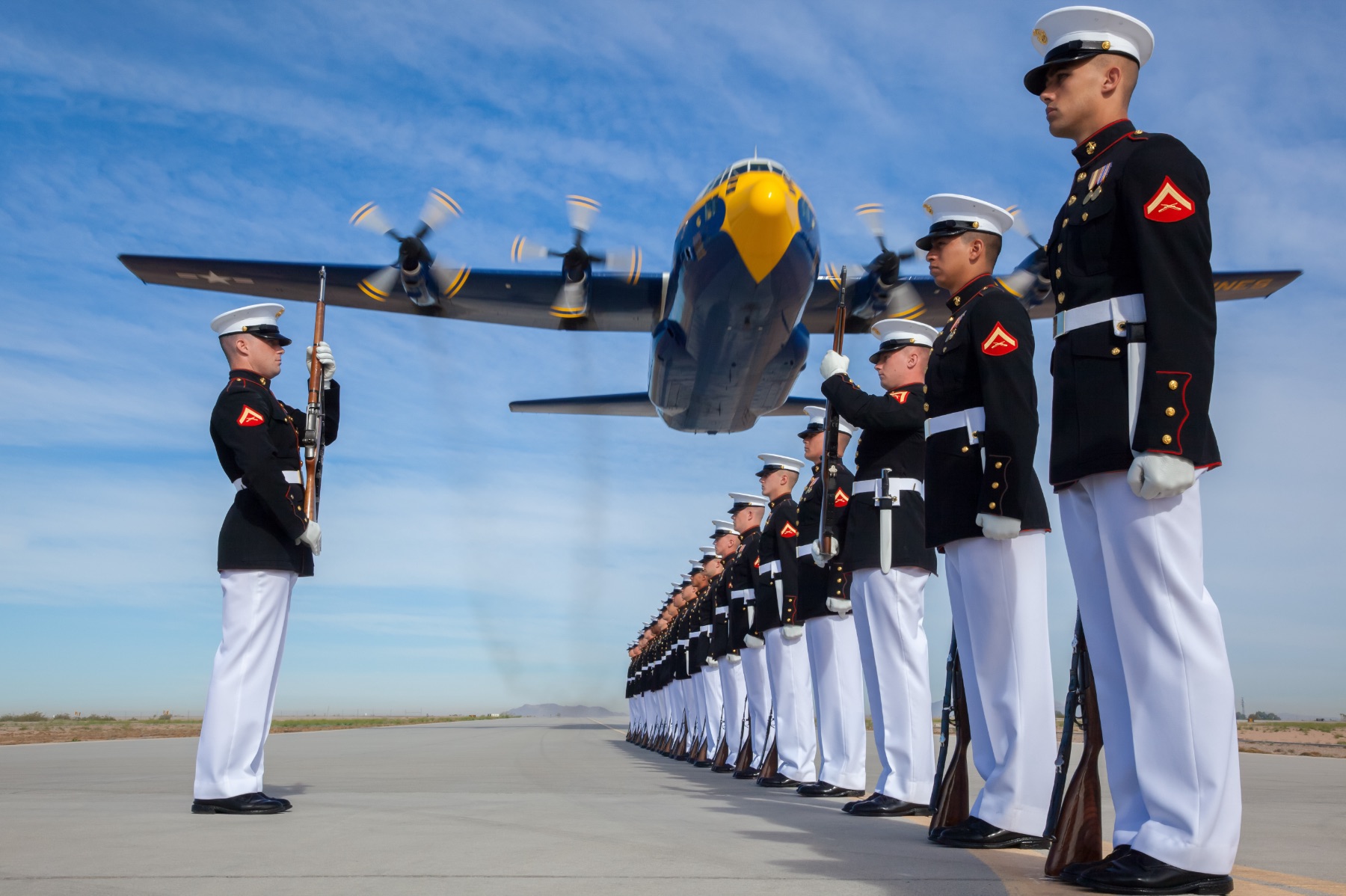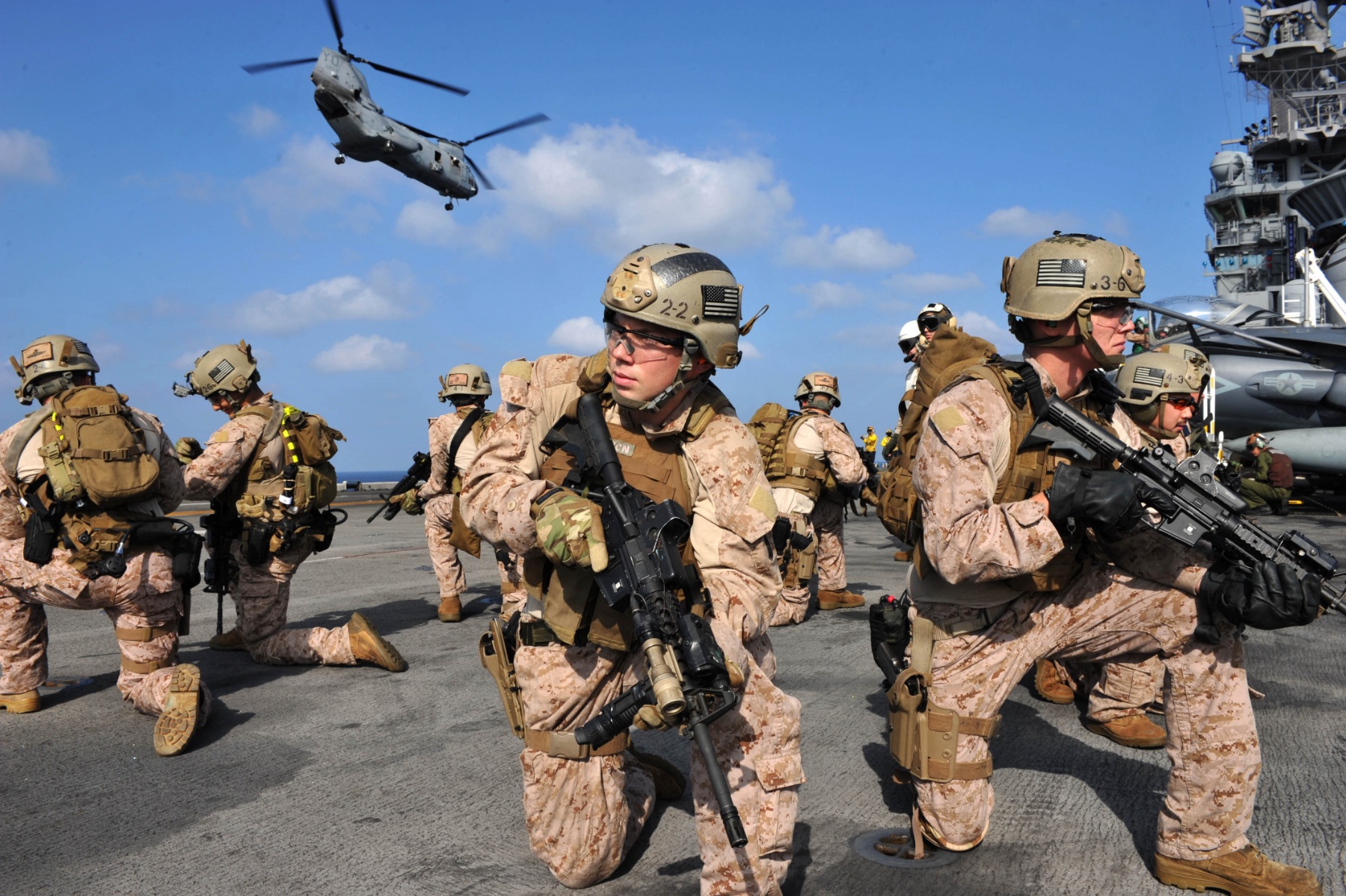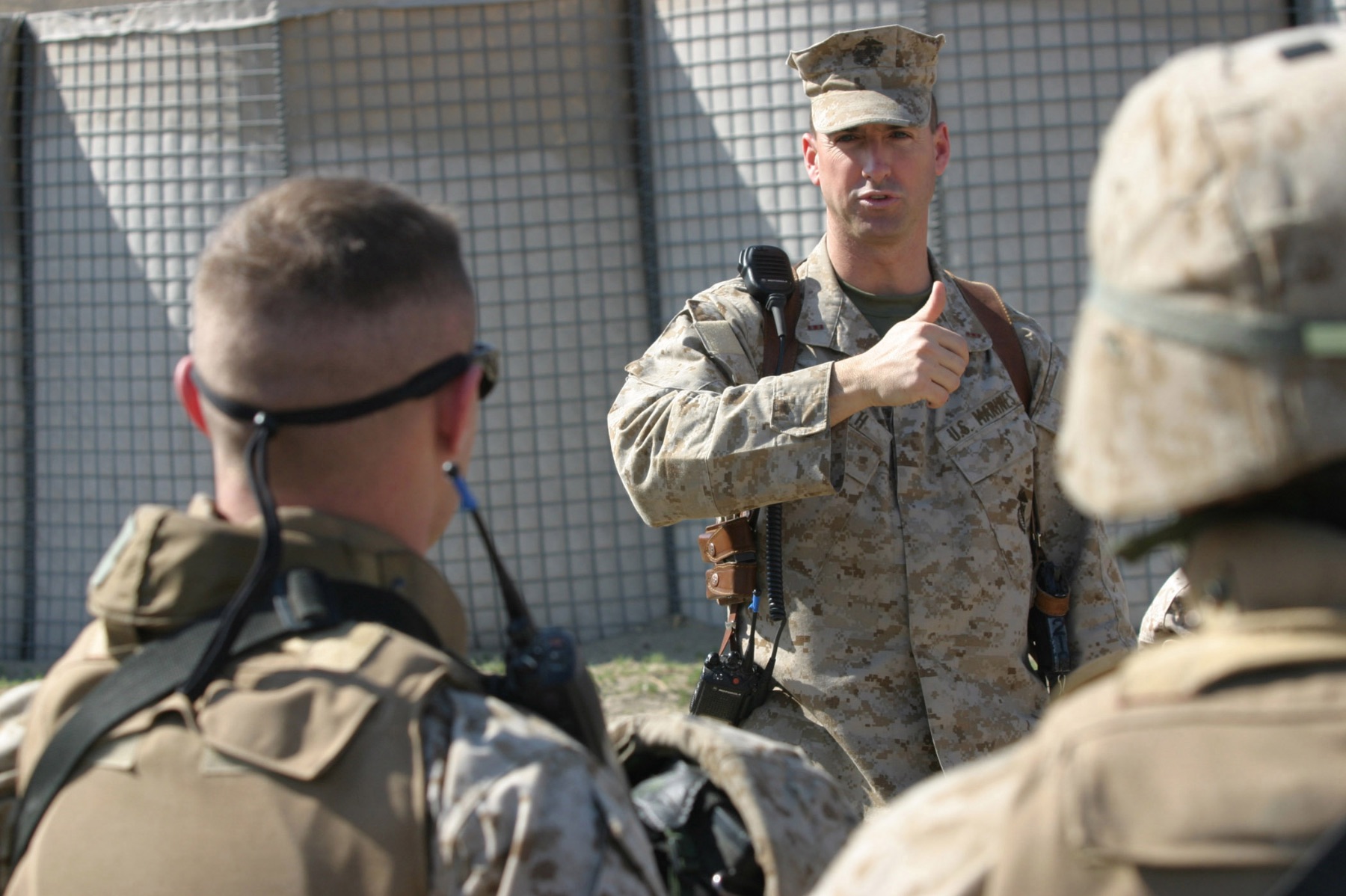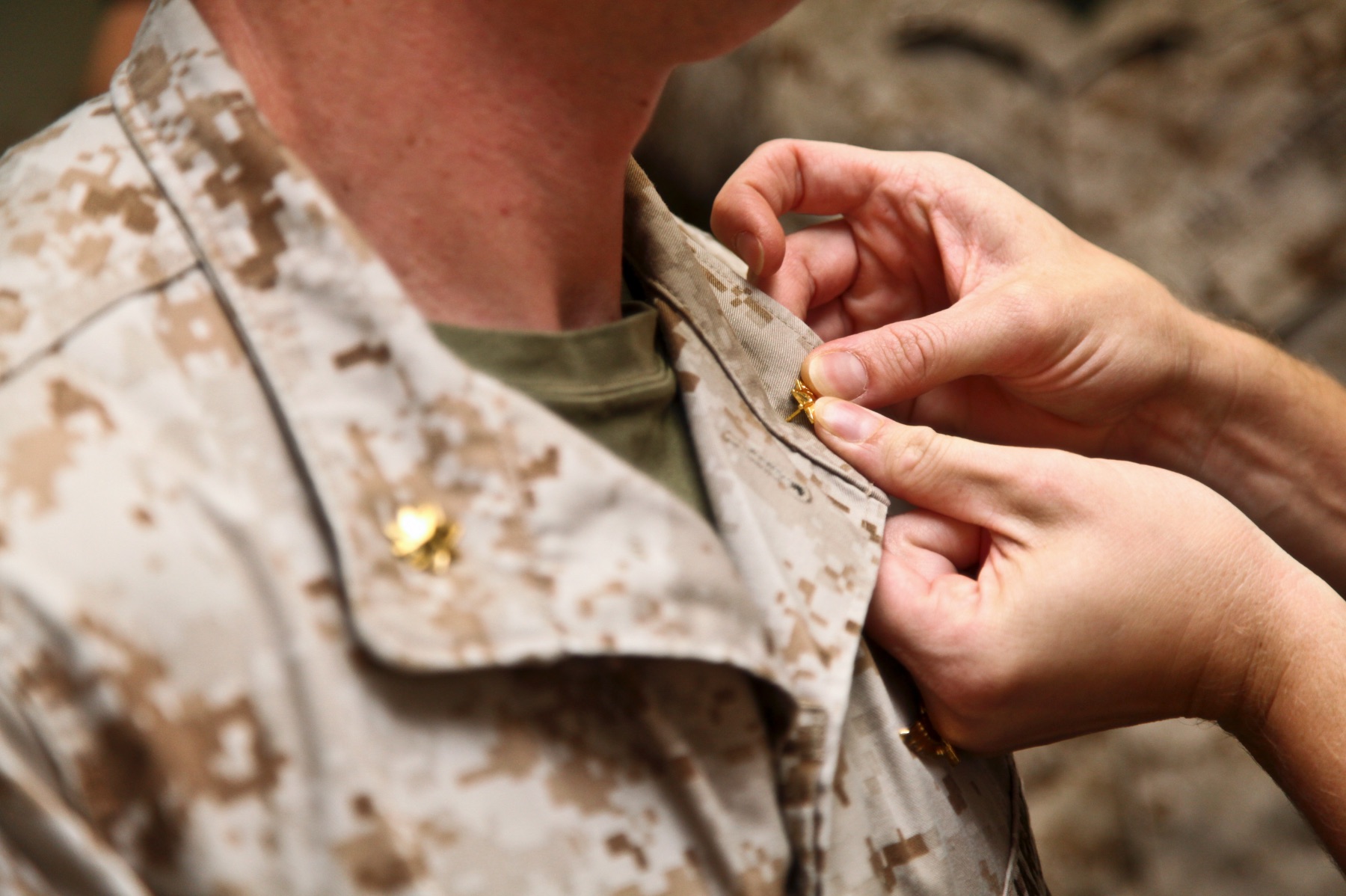
Marine Corps Ranks
The Marine Corps is the expeditionary force of the United States. As such their primary mission is to seize or defend advanced naval bases and to conduct amphibious landing operations in support of naval campaigns.

The rank structure of the US Marine Corps is divided into three basic categories: Enlisted ranks, Warrant Officer ranks, and Officer ranks. Each of these ranks fulfill various jobs, responsibilities, and levels of leadership within the US Marines Corps. Rank is vital to how the Marines function in it’s day-to-day mission, whether in peacetime or wartime. Each rank within the Marines also indicates how many Soldiers fall within each leader’s responsibility: anywhere from 3-5 Marines as a Sergeant, to tens of thousands of Marines as a Major General or higher.

ENLISTED RANKS
Enlisted Marines are the backbone of the Corps. Every Marine is a Rifleman first and is expected to fight as one when circumstances demand it. A limited number of billets for ranks at E-4 and above makes advancement highly competitive within the Corps.

Private (E-1)
Private First Class (E-2)
Lance Corporal (E-3)
Corporal (E-4)
Sergeant (E-5)
Staff Sergeant (E-6)
Gunnery Sergeant (E-7)
Master Sergeant (E-8)
First Sergeant (E-8)
Master Gunnery Sergeant (E-9)
Sergeant Major (E-9)
Sergeant Major of the Marine Corps (E-9)

WARRANT OFFICER RANKS
Warrant Officers are divided into Technical and Gunner specialty programs, Technical Warrants are non-combat arms specialists in areas like electronics, supply, and intelligence while the Gunners are experts in infantry weapons and their employment in battle.

Warrant Officer 1 (WO)
Chief Warrant Officer 2 (CW2)
Chief Warrant Officer 3 (CW3)
Chief Warrant Officer 4 (CW4)
Chief Warrant Officer 5 (CW5)

OFFICER RANKS
These commissioned officers are oriented in their training and career path to the leadership of the platoon, companies, battalions, and brigade sized formations of the Marine Corps. They get their commission and authority directly from the President of the United States.










